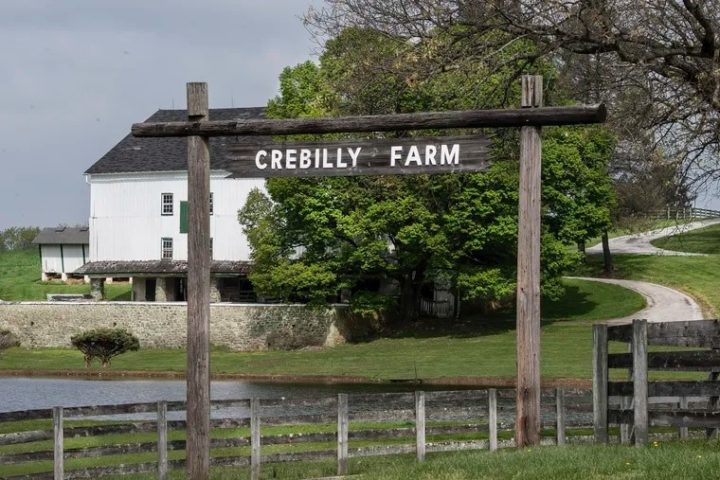Press release shared by Willistown Conservation Trust, 5/6/2024. Photo courtesy of Willistown Conservation Trust.
Willistown Conservation Trust’s Watershed Protection Program documents first river otters in Ridley Creek in over 100 years
Willistown Conservation Trust is pleased to announce the return of American river otters (Lontra canadensis) to the headwaters of Ridley Creek for the first time in over 100 years. This exciting development marks a significant milestone in regional conservation efforts and underscores the importance of protecting natural habitats for wildlife.
River otters were present in most waterways across North America prior to the arrival of European settlers. As a result of widespread fur trapping and habitat destruction due to human development, otters disappeared from waterways across most of Pennsylvania by the early 1900’s, however focused reintroduction efforts in the 1980s led to a population rebound in northern Pennsylvania. The recent documentation of river otters in the headwaters of Ridley Creek in southeastern Chester County is a monumental event as these animals are highly sensitive to pollution and habitat degradation and require healthy water conditions.
The return of river otters to the Ridley Creek watershed is a sign that conservation efforts in the region are having a positive impact on the overall ecosystem. Willistown Conservation Trust has been working to protect open space and restore habitat in the headwaters of the Ridley, Crum and Darby Creek watersheds since 1996. The arrival of river otters coincides with the recent acquisition of the 90-acre Kestrel Hill Preserve, located in the Ridley Creek watershed. This property was saved from development, permanently protecting a critical piece of the otter’s habitat. The work of Willistown Conservation Trust and other local conservation and watershed organizations throughout Chester County has provided space for sensitive wildlife, such as otters, to return to the region.
Tom Keller, the Pennsylvania Game Commission’s Furbearer Biologist confirmed this sentiment, noting, “As the state’s wildlife agency, the Pennsylvania Game Commission applauds partners in conservation such as Willistown Conservation Trust. Wildlife in Pennsylvania belongs to all Pennsylvanian’s and the return of the river otter in the Keystone State is a direct result of conservation minded people working together to better their community by restoring first their environment which then translates to the wildlife that call it home. This is a great example of a community caring about a watershed and a species responding to that passion and dedication.”
In addition to being indicators of healthy ecosystems, river otters play an important role in the environment. River otters are a keystone species in aquatic ecosystems: as a predator, they regulate prey populations, their foraging and den building behaviors modify habitat structure for other wildlife, and their presence in the ecosystem influences community dynamics. Most importantly, they serve as indicators of ecosystem health, and contribute to overall biodiversity and ecosystem resilience. Protecting and conserving otter populations and their habitats is essential for maintaining the ecological balance and functioning of freshwater ecosystems.
To learn more about river otters and Willistown Conservation Trust’s land protection and water research efforts, please visit www.wctrust.org
Found 20 miles west of Philadelphia, Willistown Conservation Trust (WCT) focuses its conservation efforts on 28,000 acres within the watersheds of Ridley, Crum, and Darby Creeks of Chester and Delaware Counties. Since 1996, WCT has helped permanently conserve over 7,500 acres, including three nature preserves open to the public: Ashbridge Preserve, Kirkwood Preserve, and Rushton Woods Preserve, which is home to Rushton Conservation Center and Rushton Farm. WCT offers six core activities for public engagement and research: the Bird Conservation, Community Farm, Education and Outreach, Land Protection, Stewardship, and Watershed Protection Programs.



